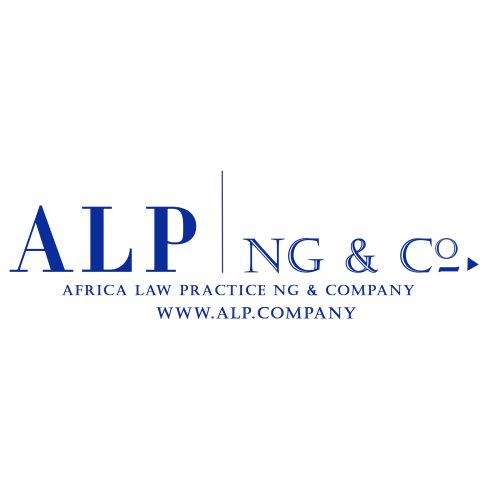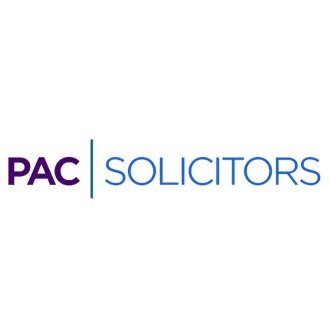About Water Law in Nigeria
Water Law in Nigeria covers the legal frameworks and regulations governing the ownership, allocation, management, and use of water resources within the country. It addresses various aspects, including water rights, water supply, sanitation, conservation, pollution control, and the responsibilities of public and private entities. Water is a critical resource for social and economic development in Nigeria, so effective water governance and legislation are essential for the well-being of communities, industries, and the environment.
Why You May Need a Lawyer
There are several situations where individuals, businesses, or communities may require legal assistance related to Water Law in Nigeria. Common reasons include:
- Disputes over water rights and access between communities, landowners, or businesses
- Legal issues concerning water pollution or environmental degradation caused by industries or agricultural practices
- Compliance with government regulations or obtaining necessary permits for water usage
- Challenges related to water supply, such as unfair distribution or inadequate quality
- Participation in public consultations on water resource development projects, such as dams or irrigation schemes
- Claims for compensation where water resources have been affected by government projects or private activities
- Representation in court or administrative hearings on water-related matters
- Negotiating contracts for water supply or services
Legal advice helps you understand your rights and obligations, avoid penalties, and ensure that your actions are in line with Nigerian water laws.
Local Laws Overview
Water Law in Nigeria is shaped by both federal and state legislation, as well as policies and customary practices. The key legal instrument is the Water Resources Act, 2004, which vests the ownership, control, and management of water resources mainly in the federal government. Key aspects of water law relevant in Nigeria include:
- Water Use and Permits: The Act requires individuals and organizations to obtain permits before using water from surface or underground sources for commercial, agricultural, or industrial purposes.
- Pollution Control: Laws prohibit the pollution of water bodies and set standards for waste discharge and water quality. Offenders can face fines or prosecution.
- Customary Rights: In areas not governed directly by federal law, customary rights to water for domestic purposes are recognized, especially in rural communities.
- Role of States: States may have additional water legislation overseeing local water supply, sanitation, and management within their territories.
- Environmental Protection: Acts like the Environmental Impact Assessment Act apply to major water-related projects to ensure minimal environmental harm.
- Institutional Framework: The Federal Ministry of Water Resources oversees policy, while agencies like the Nigeria Integrated Water Resources Management Commission supervise compliance and handle disputes.
Understanding these frameworks is essential for anyone involved in activities related to water resources in Nigeria.
Frequently Asked Questions
What is the main law regulating water resources in Nigeria?
The primary law is the Water Resources Act, 2004, which applies to the management and regulation of water resources throughout Nigeria.
Who owns water resources in Nigeria?
Under the Water Resources Act, all water in Nigeria is vested in the federal government, acting as trustee for the people.
Do I need a permit to use water for farming or business?
Yes. If you intend to use large amounts of water, especially for commercial or agricultural purposes, you must obtain a permit from the relevant authorities.
Can individuals drill boreholes on their property?
Generally, for private domestic use, individuals may drill boreholes. However, state laws may require registration or approval. For commercial or large-scale boreholes, permits are usually required.
What are the penalties for polluting a water body?
Penalties can include fines, imprisonment, or both, depending on the severity of the offense and applicable laws. Offenders may also be required to remediate the damage caused.
How are community rights to water protected?
Customary laws often recognize the rights of local communities to access water for domestic and personal use, provided these activities do not conflict with national law.
What should I do if my water source is contaminated by a neighbor or company?
You can report the incident to environmental or water resource agencies. Legal action may also be taken to seek compensation or force the polluter to clean up the damage.
Are there specific laws governing water supply by government or private companies?
Yes. Both federal and state laws regulate public and private water supply services, including quality standards, pricing, and service obligations.
Can water disputes be resolved without going to court?
Yes. Many disputes can be settled through mediation, negotiation, or administrative hearings organized by regulatory agencies.
Where can I get help with water-related legal issues?
You can seek advice from lawyers specializing in environmental and water law or contact relevant government agencies for guidance.
Additional Resources
For further information or assistance regarding Water Law in Nigeria, you may consult the following:
- Federal Ministry of Water Resources: Responsible for water resources policy, permits, and regulation.
- Nigeria Integrated Water Resources Management Commission: Oversees compliance with water resource regulations and handles disputes.
- State Ministries of Environment and Water Resources: Provide information on local regulations and permits.
- Environmental Rights Action/Friends of the Earth Nigeria: Offers support on environmental and water rights issues.
- Nigerian Bar Association (NBA): Search for legal professionals experienced in water law.
Next Steps
If you need legal assistance related to Water Law in Nigeria, consider the following steps:
- Clearly identify the specific issue, such as permitting, water rights disputes, pollution, or compensation claims.
- Gather all relevant documentation, including permits, correspondence, and evidence of the issue.
- Contact a qualified lawyer with experience in water or environmental law for a consultation.
- Approach the relevant government agency or regulatory body for guidance if your issue involves permitting or compliance.
- Explore alternative dispute resolution methods, such as mediation, if appropriate for your case.
Taking timely and informed action will help protect your interests and ensure compliance with the law.
Lawzana helps you find the best lawyers and law firms in Nigeria through a curated and pre-screened list of qualified legal professionals. Our platform offers rankings and detailed profiles of attorneys and law firms, allowing you to compare based on practice areas, including Water Law, experience, and client feedback.
Each profile includes a description of the firm's areas of practice, client reviews, team members and partners, year of establishment, spoken languages, office locations, contact information, social media presence, and any published articles or resources. Most firms on our platform speak English and are experienced in both local and international legal matters.
Get a quote from top-rated law firms in Nigeria — quickly, securely, and without unnecessary hassle.
Disclaimer:
The information provided on this page is for general informational purposes only and does not constitute legal advice. While we strive to ensure the accuracy and relevance of the content, legal information may change over time, and interpretations of the law can vary. You should always consult with a qualified legal professional for advice specific to your situation.
We disclaim all liability for actions taken or not taken based on the content of this page. If you believe any information is incorrect or outdated, please contact us, and we will review and update it where appropriate.

















